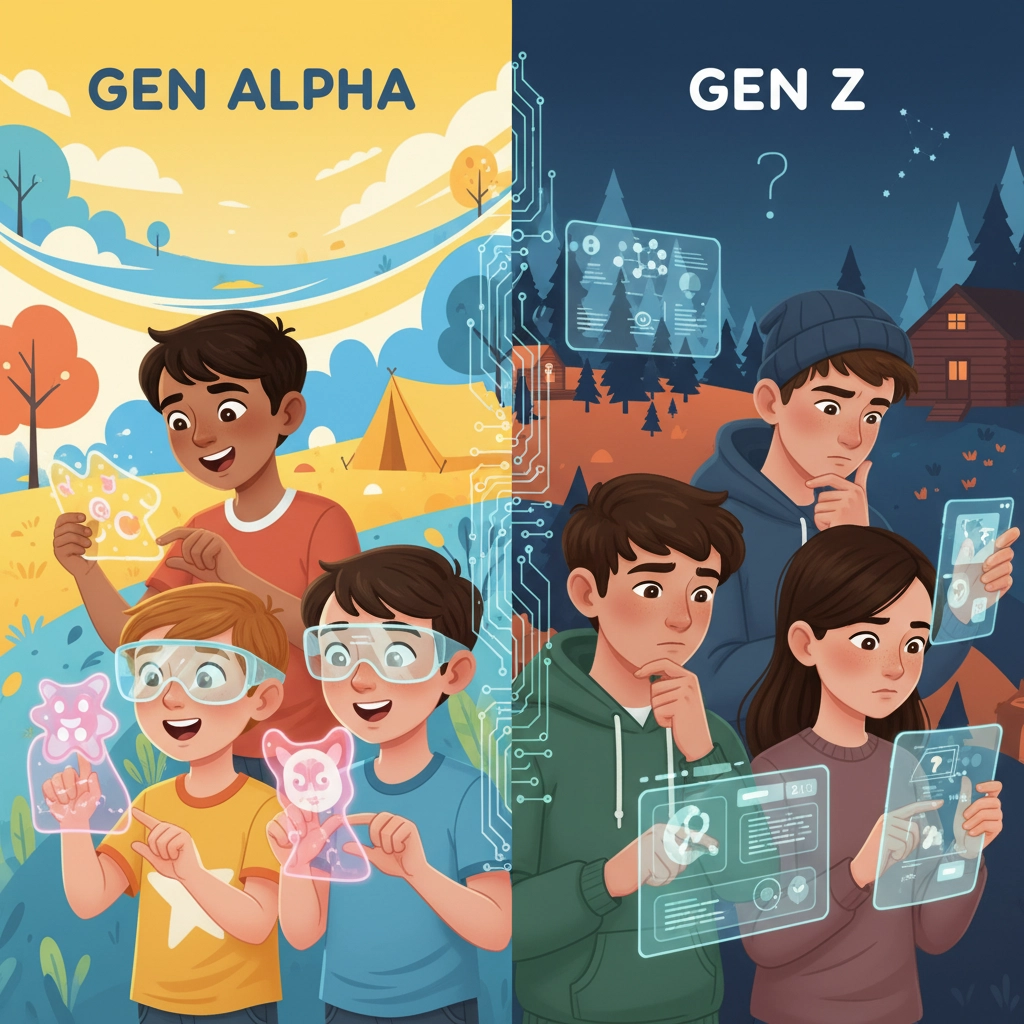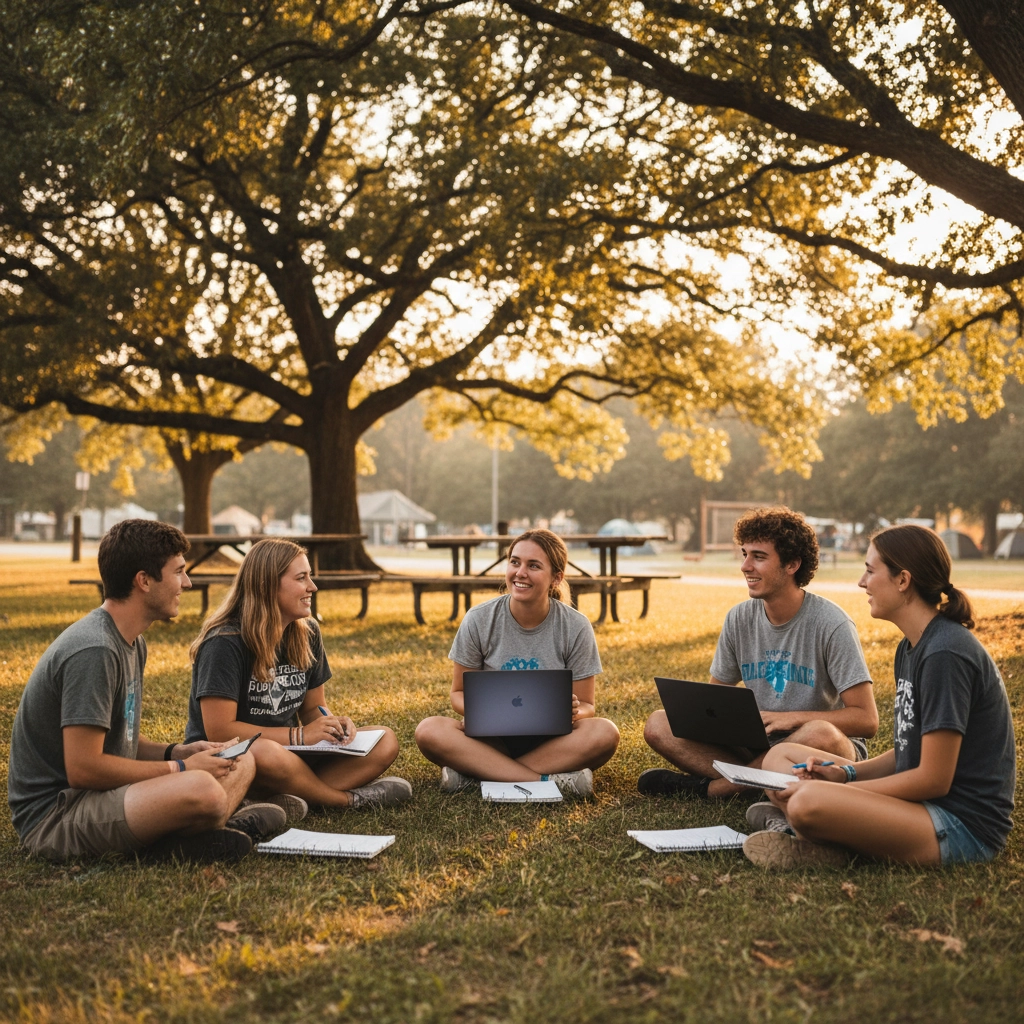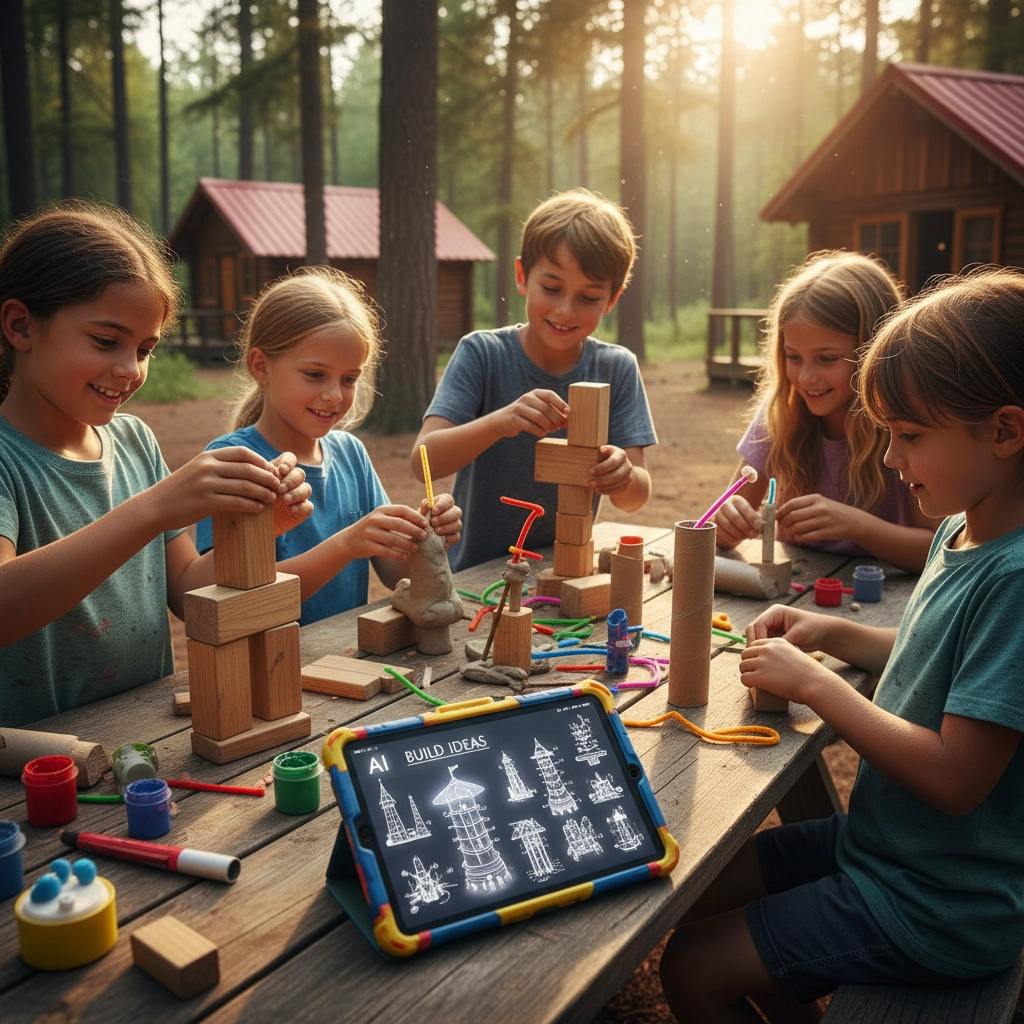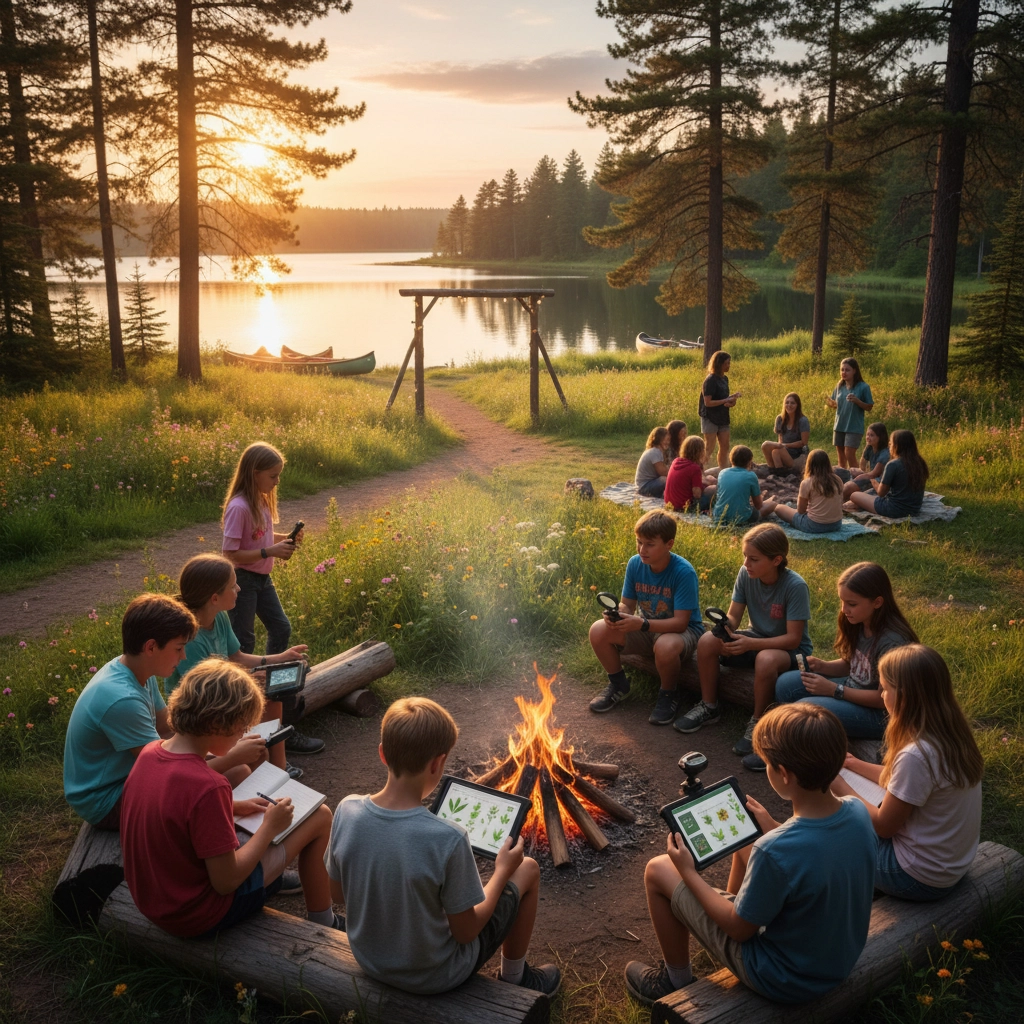The Summer Camp Daily Brief – October 12, 2025
- Matthew Kaufman

- Oct 12
- 4 min read
What's Happening Right Now
Kids are growing up with AI everywhere. Instagram's leadership is already warning parents that "seeing isn't believing" anymore when it comes to videos. Meanwhile, experts worry that too much AI reliance might hurt kids' natural curiosity and problem-solving skills.
Here's the reality: 85% of teachers and 86% of students used AI tools this school year. That means your campers are already familiar with these tools: and they're coming to camp with certain expectations.
At the same time, Gen Z staff members (your counselors and program leaders) are dealing with burnout and looking for work that feels meaningful. They want roles where they can make a real difference, not just go through the motions.

Why This Matters to Your Camp
You might be thinking, "We're a summer camp, not a tech company." But here's the thing: your campers don't see it that way.
Today's kids assume technology will "just work" and be helpful. If your camp completely ignores this reality, you risk feeling outdated to them. But if you lean too heavily into tech, you lose what makes camp special in the first place.
The sweet spot? Teaching kids to think critically about technology while still embracing what makes camp magical: human connection, nature, creativity, and play.
Understanding Gen Z and Gen Alpha
Gen Alpha (your younger campers) often think AI tools are naturally "smart." Some believe everything an AI says is true, like it's reading from a perfect encyclopedia. Others think AI actually "thinks" like humans do.
Gen Z (your older campers and younger staff) are watching job market trends closely. They know AI is changing the workforce, and many are drawn to roles where human skills matter most: like mentoring, creativity, and building relationships.
Both generations crave authenticity and want to understand how things actually work. They're not satisfied with "because I said so" explanations.

Staff Training That Actually Works
Instead of overwhelming your team with complex tech training, focus on building these habits:
Start Small with AI Literacy
Spend 5-10 minutes in staff meetings letting everyone try simple prompts and see what happens. When AI gives a weird answer (and it will), laugh about it together and figure out why it happened.
Teach the "Question Everything" Approach
After any AI interaction, train your staff to ask: "Does this make sense? What would I change about how we asked the question? Could this be wrong?"
This isn't just for AI: it's a life skill.
Create a Simple Safety Checklist
Give your staff a quick mental checklist:
Pause when an AI response seems off
Never share personal camper information with AI tools
Always have a human double-check important decisions
Remember that AI can reflect biases and make mistakes
Model Work-Life Balance
Your Gen Z staff are watching how you handle burnout and boundaries. Show them it's okay to take breaks, admit mistakes, and prioritize mental health.

Child Development in an AI World
The goal isn't to shield kids from technology: it's to help them develop a healthy relationship with it.
Build Curiosity AND Skepticism
Encourage campers to ask "Why did it answer that way?" or "What if we asked differently?" Make questioning tools as normal as questioning anything else.
Try the "Prompt Improvement" Game
Give campers a poorly written question for an AI tool, then let them work together to make it clearer. Better questions get better answers: and that's a skill they'll use their whole lives.
Balance Digital and Physical
Use this pattern: brainstorm with AI, then build something real with your hands. Or research a topic with AI, then go outside and observe it in nature.
Reflection Time Is Key
After using any technology, give kids a few minutes to think: "What surprised me? What would I do differently next time? When did I trust the tool too much?"
What You Can Try This Week
Ready to start small? Pick one of these:
For Campers:
AI Detective Workshop: Show campers some obviously wrong AI answers and let them figure out what went wrong
Prompt Challenge: Have them rewrite a confusing question to get a better response
Tech Timeout: Schedule specific times when all devices go away and everyone focuses on face-to-face activities
For Staff:
Share a "Fail Story": Start your next staff meeting by sharing a time when technology didn't work as expected: and what you learned
Quick Check-In: Ask each staff member to share one surprising thing they noticed about technology this week
Practice Scenarios: Role-play situations where campers ask about AI or encounter confusing tech responses

The Big Picture
Here's what we know: AI and advanced technology aren't going away. Your campers are growing up with these tools, and they need adults who can help them navigate this landscape thoughtfully.
Camps are uniquely positioned to do this well. Unlike schools with rigid curricula or parents juggling work demands, you have the flexibility to experiment, play, and focus on what kids actually need.
You don't need to become a tech expert overnight. You just need to stay curious, ask good questions, and remember that your most important job hasn't changed: helping kids grow into thoughtful, confident, connected human beings.
The technology is just another tool in that process. Use it wisely, question it regularly, and never let it replace the human magic that makes camp special.
Key Takeaways
Kids are already using AI: teaching them to think critically about it is better than ignoring it
Staff training should focus on asking good questions, not mastering complex technology
Balance is everything: use tech to enhance camp experiences, not replace them
Start with small experiments rather than major program overhauls
Your role as a caring adult and critical thinking mentor is more important than ever
What's one small step you want to try with your campers or staff this week? The best approach is to start somewhere and learn as you go.

Ready to dive deeper into camp leadership and staff development?
Follow @mattlovescamp on Instagram for daily insights and practical tips.
Join our community of camp professionals at www.ilove.camp: where camp leaders share ideas, solve problems, and support each other year-round.



Comments